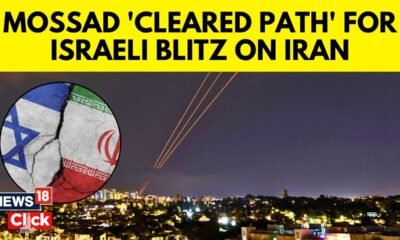US bombs Iran nuclear sites: A New Chapter in the Middle East Conflict?
The Middle East has been thrust into a new period of uncertainty following a series of US airstrikes targeting Iran’s nuclear facilities. The bold action, announced by President Donald Trump, has ignited a firestorm of international reaction and raised the specter of a wider regional conflict. The situation is volatile, and the potential consequences are far-reaching.

US bombs Iran nuclear sites and Tehran warns of ‘everlasting consequences’ | BBC News
Trump’s Bold Assertion and Iran’s Fiery Response
President Trump, in a televised address, claimed that the US strikes “totally obliterated” Iran’s key nuclear enrichment facilities. He presented the action as a preemptive measure to prevent Iran from developing nuclear weapons, a claim Iran vehemently denies. He issued a stark warning to Tehran, demanding they “make peace” or face even more devastating attacks. This aggressive stance, coupled with the scale of the alleged destruction, has sent shockwaves across the globe.
Iran’s response was swift and uncompromising. Foreign Minister Javad Zarif condemned the strikes as “outrageous” and warned of “everlasting consequences.” This strongly worded statement highlights the gravity of the situation and suggests a potential for significant retaliation. The precise nature of Iran’s response remains unclear, but the threat alone significantly escalates tensions.
International Reactions and the Role of the UN
The international community is grappling with the implications of the US strikes. While the UK government confirmed they were informed of the attacks beforehand, their lack of direct involvement underscores a potential rift within the allied nations. Many countries are expressing deep concern about the escalation of the conflict and the potential for wider instability in the region.
The UN’s nuclear watchdog, the International Atomic Energy Agency (IAEA), has reported no increase in radiation levels following the strikes. This suggests that, at least for now, there is no immediate nuclear threat from the damaged facilities. However, this does not diminish the seriousness of the situation, as the long-term implications for nuclear proliferation and regional security remain deeply uncertain.
A Complex Geopolitical Landscape
The US strikes represent a significant escalation in the already complex Israel-Iran conflict. While the exact reasons behind the strikes remain shrouded in some ambiguity, the action clearly positions the US more directly in this long-standing conflict. This direct involvement could significantly alter the dynamics of the region, potentially drawing in other regional actors and increasing the likelihood of a wider war.
The lack of clarity surrounding the extent of the damage to Iran’s nuclear program also fuels uncertainty. While Trump claims “total obliteration,” independent verification is crucial to fully understanding the consequences for Iran’s nuclear ambitions and its ability to retaliate.
Looking Ahead: Uncertainty and the Path to De-escalation
The situation is extremely fluid, and the coming days and weeks will be critical in determining the future trajectory of the conflict. The international community must work urgently to de-escalate the situation and prevent further violence. Dialogue, diplomacy, and a commitment to international law are crucial to navigating this dangerous period. The potential for unintended consequences is high, and a miscalculation could have catastrophic repercussions for the entire region and the global order. The path ahead is fraught with peril, and the need for calm and measured responses has never been more pressing.
Credit: BBC NEWS

















![[VDO] What evidence does Thailand have to claim Tamoan Thom Temple as its own? 26 What evidence does Thailand have to claim Tamoan Thom Temple as its own](https://hothotnews.com/wp-content/uploads/2025/06/What-evidence-does-Thailand-have-to-claim-Tamoan-Thom-Temple-as-its-own-e1751463052220.jpg)


